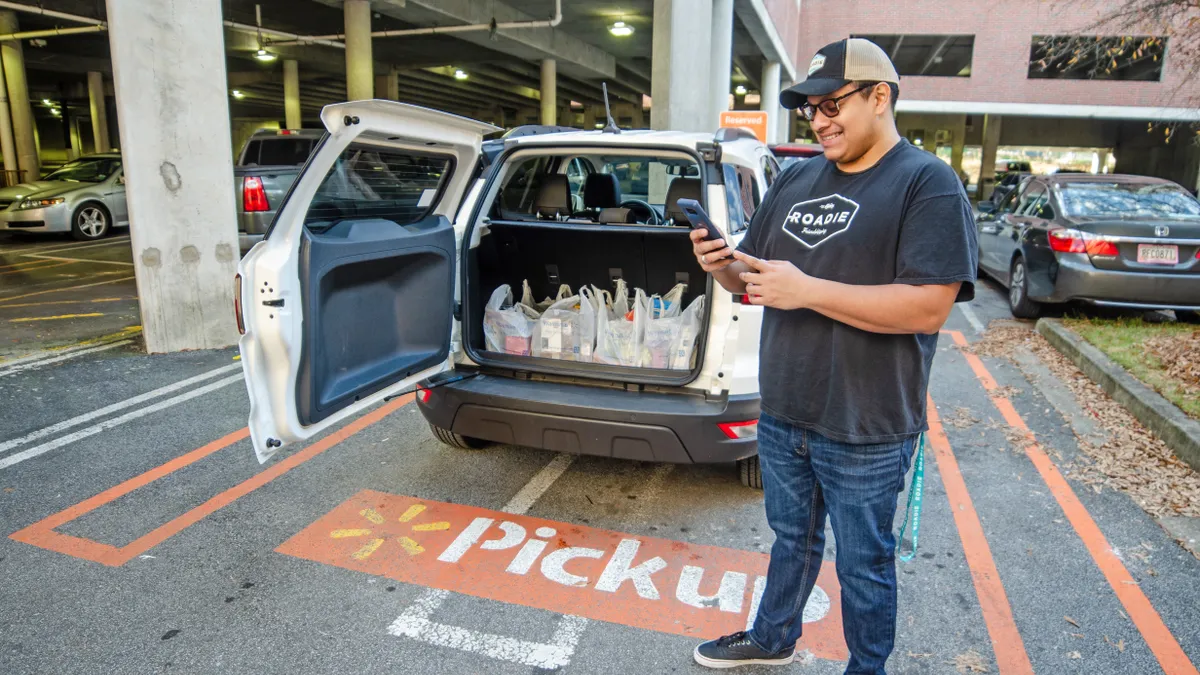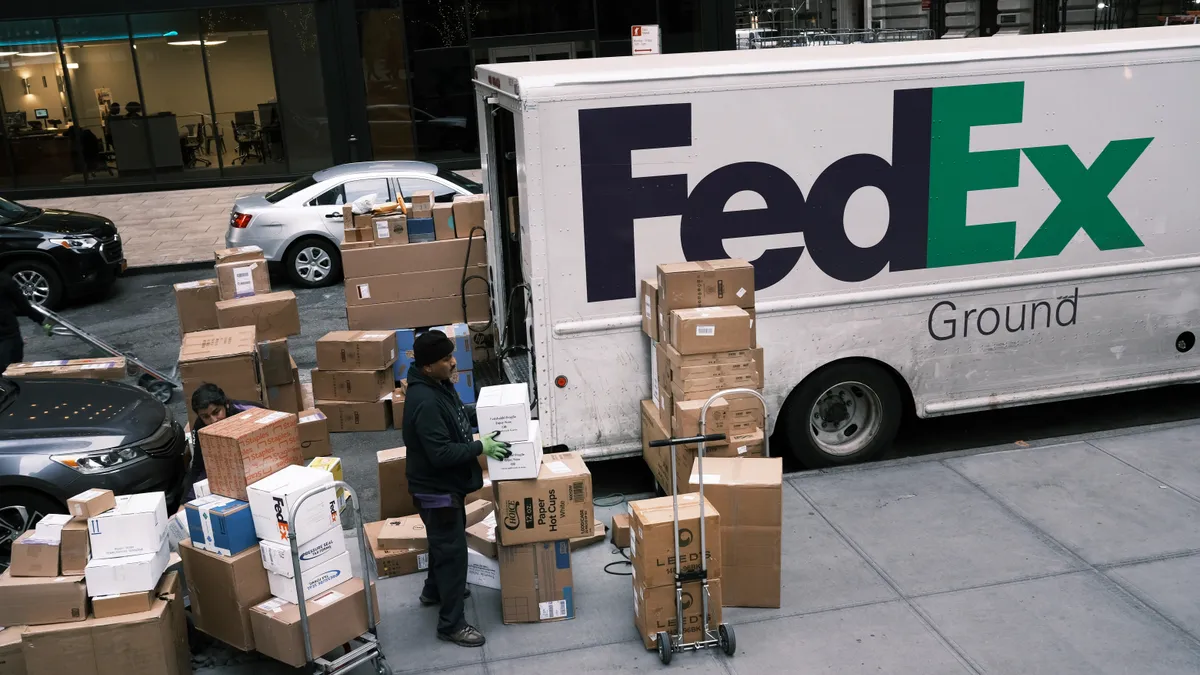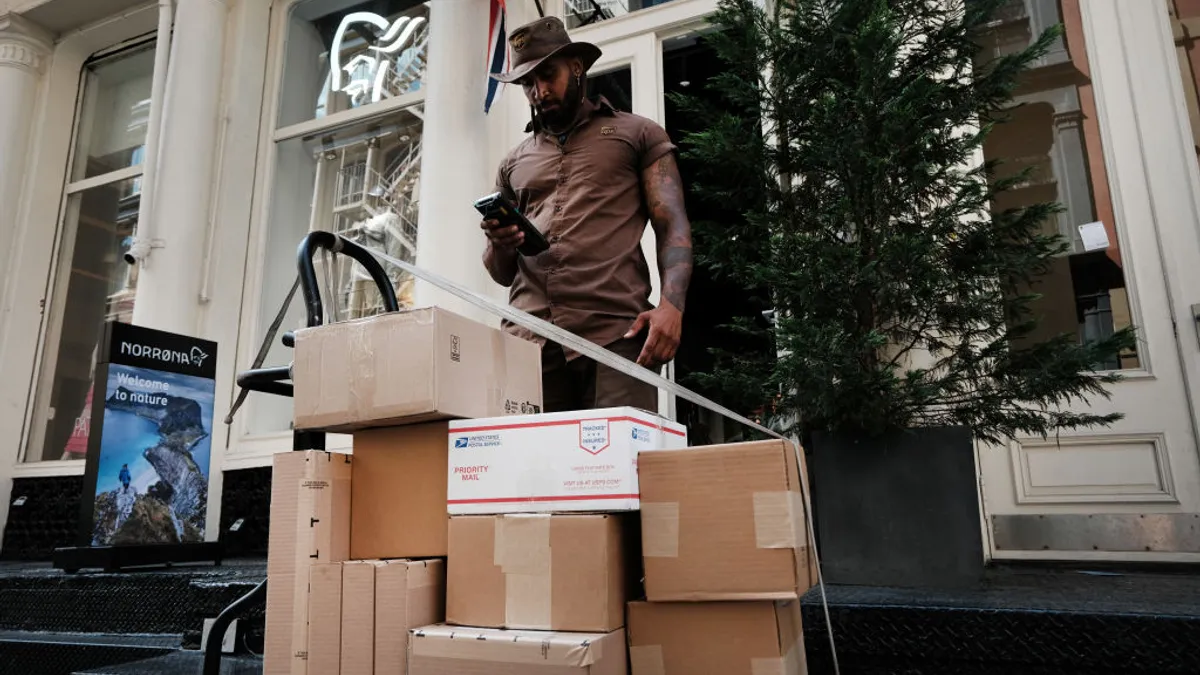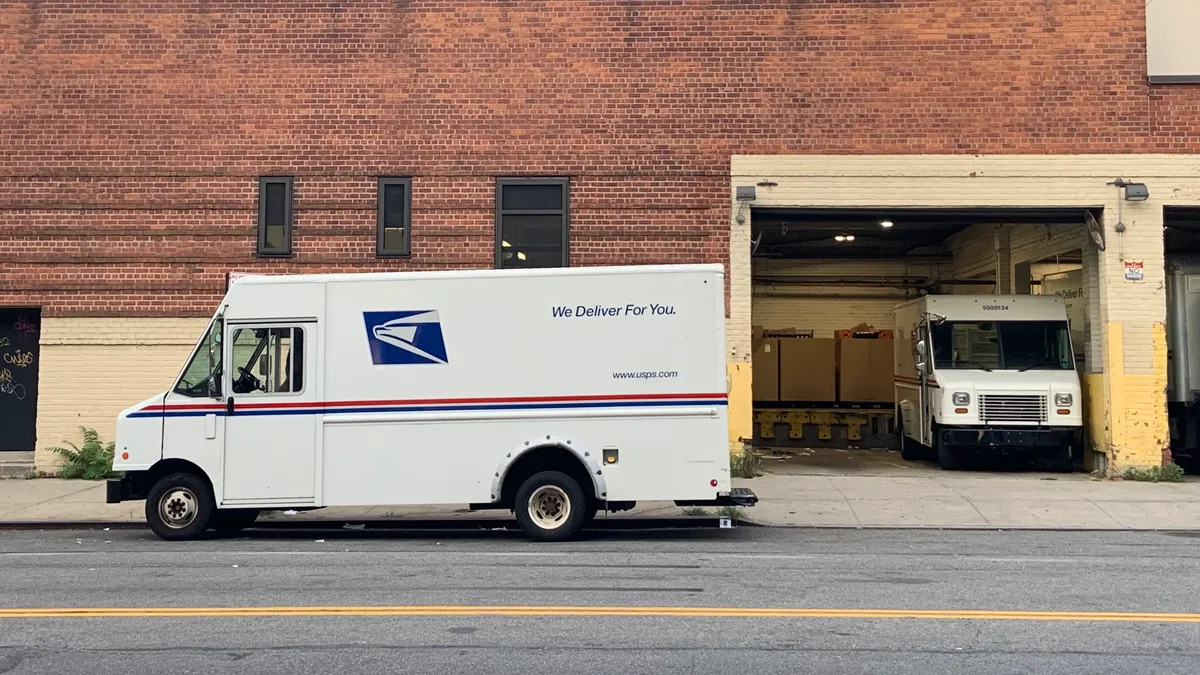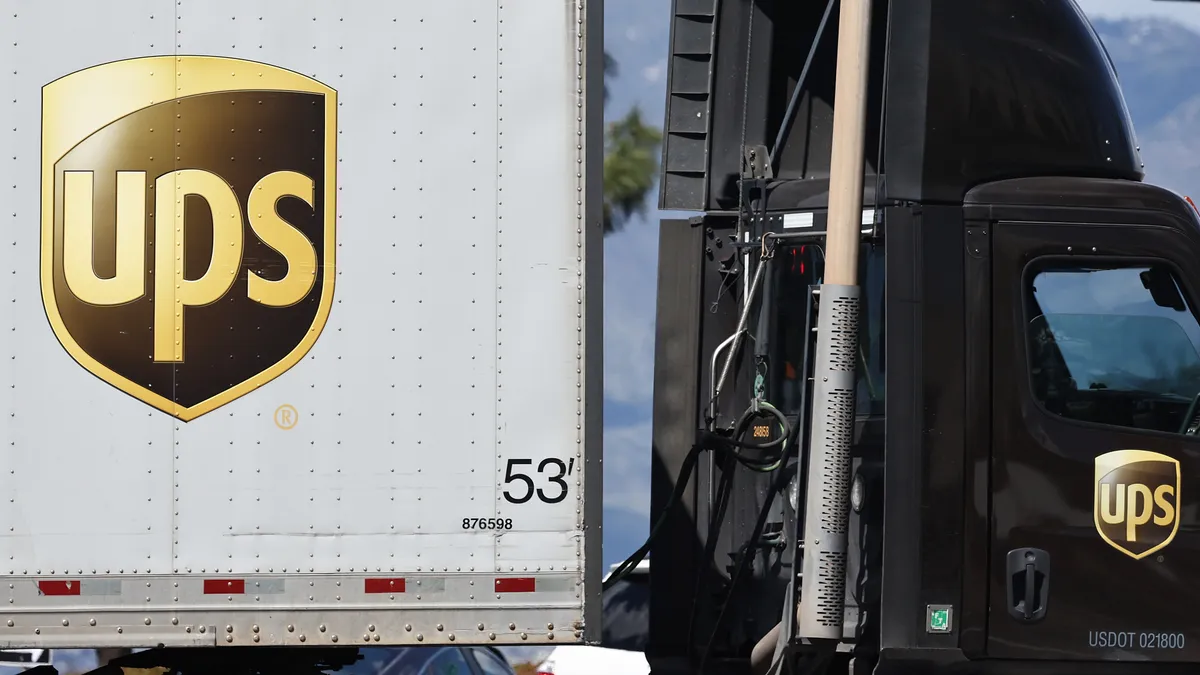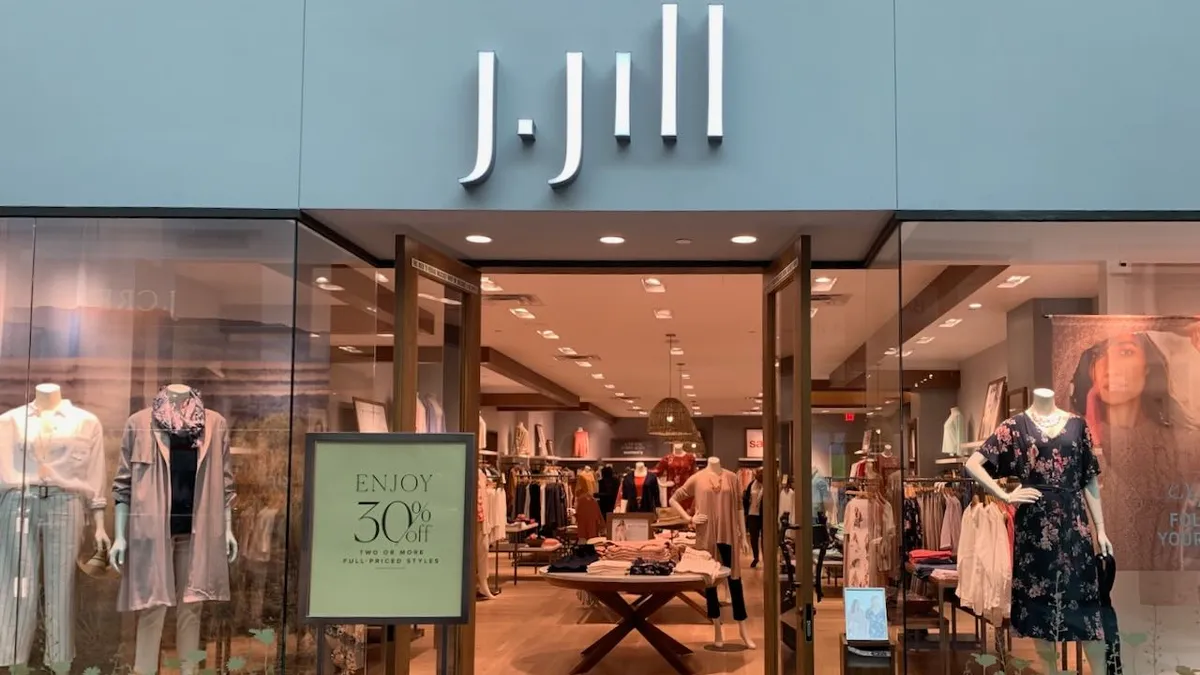This story is part 2 of a three-part series on e-commerce and parcel logistics. Read all the stories here.
Every holiday season there is an invisible deadline that drives procrastinating shoppers into stores in droves: the shipping cut-off. Order by this date for Christmas Eve delivery. Miss it, and you’re on your own.
In 2020, this same deadline came again, though perhaps a bit earlier than usual. But the shopper was different. In 2020, as consumers hesitated to leave home, the shoppers rushing to stores were paid by gig economy services to do so.
Throughout the pandemic, gig-economy-based logistics players such as Instacart, Postmates, Roadie and Shipt have moved into new roles — becoming more than simple speed plays. In many cases, they have integrated into retailers' parcel portfolios as an alternative to traditional carriers.
Roadie CEO Marc Gorlin said one customer increased its deliveries through the app by 3,000% from January to April. The flexible “hiring” inherent within gig platforms make them ideally set up for volume fluctuations. “A distributed workforce carries fewer points of failure,” Gorlin said.
"Those that were not prepared had to be reactive, and they just put many patches in one place. But now, when the volume starts coming, and they see the velocity of the demand is increasing, it doesn't scale, and it breaks."

Guy Block
CEO at Bringg
Gig-based delivery companies, mostly startups, have been slowly but steadily racking up retail partnerships for the last several years. Neither Instacart, Postmates, Roadie nor Shipt was founded before 2011. Many scaled through food of one stripe or another, grocery, or restaurant. But ask the CEOs, and they’ll say they always knew gig-backed services would make it into nonperishable retail.
“What was a surprise was not where the market is heading — that's why the company exists," Bringg CEO Guy Bloch said in an interview. Bringg software helps users orchestrate last-mile delivery through numerous gig-based, last-mile providers. "What changed was how fast we got to the point that the market realized that that's what they need to do, because suddenly it was no longer a nice-to-have. This is a must-have.”
A change in the math
Online integrations at checkout, offering a litany of possibilities for order fulfillment, are exhibit A that these companies have arrived. But the even stronger evidence are the conversations happening right now between major retailers and the gig-backed providers. After throwing together curbside pickup, buy online pickup in store and same-day-delivery programs in haste last year, permanently installing these services is first on the docket in 2021, according to Bloch.
“Those that were not prepared had to be reactive, and they just put many patches in one place. But now, when the volume starts coming, and they see the velocity of the demand is increasing, it doesn't scale, and it breaks, and it's not optimized .... So, the big initiative is, how do we create an ERP for the last mile?” Bloch said.
It’s not just closed stores that sent retailers clamoring for same-day services. The parcel carrier capacity crunch has launched the gig economy into the prime-time, small-parcel world to compensate. In 2020, traditional carriers made two simultaneous moves that fast-tracked the growth of these players. Carriers upped costs for shippers with surcharges and pricing changes without a clear end-date in sight. They also did not hesitate to say that the surcharging strategy would be a favorite in the future.
“If Shipt and Instacart and Doordash and Uber are all doing last mile from stores, that's a pretty good hedge."

Rick Watson
CEO at RMW Commerce Consulting
Carrier service also faltered. With demand for parcel services far ahead of supply, on-time deliveries dipped, and the cost-benefit analysis of traditional carrier versus gig carrier changed.
UPS even encouraged retailers to push consumers toward omnichannel services that wouldn't require UPS service, when capacity began to tighten heading into the 2020 holiday season.
“If Shipt and Instacart and Doordash and Uber are all doing last mile from stores, that's a pretty good hedge,” said Rick Watson, CEO of RMW Commerce Consulting. Pitney Bowes, with no physical stores from which to ship, has launched a same-day offering for its shippers, partnering with Roadie and Postmates on delivery. And Roadie has a similar deal with Shopify.
Home Depot invested in Roadie when current CEO of UPS, Carol Tomé, was chief financial officer for the home improvement retailer, and Gorlin for one, isn’t surprised by UPS’ change of tone since she took the helm.
“She knows that delivery ain't free,” Gorlin said.
Flexibility trumps speed
The pandemic exploded business for gig-economy carriers from all directions — restaurants, retail, grocery and more.
Optionality is what shippers need when disruptions are constant and hard to predict, Watson said. But the CEO suggested that ship-from-store, for most retailers, may eventually be a gig-economy-only affair. Without consolidation or significant volume, it may not make sense for traditional parcel carriers to support it, in most cases.
The volume uptick for gig carriers may also be simpler than an overnight craving for supply chain agility. “Retailers move slow,” he said, and the pandemic was the push they needed. Plus, the level of consumer adoption has gone up with pandemic restrictions, too.
“We see feedback from customers coming in, and it's super simple feedback … They're basically just saying, ‘Who knew you could get so many things delivered?’ They didn't know. They weren't aware that it was possible,” Gorlin said.



